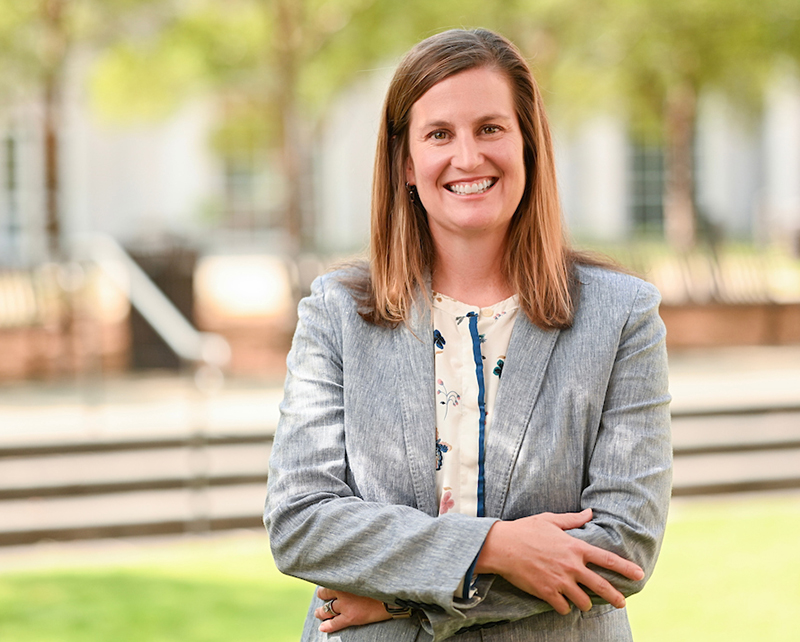
“People sometimes just aren’t trained in school to make more informed decisions. The
need for personal finance courses is becoming increasingly important because more,
and more complicated, financial products exist today.””
The Harbert College is dedicated to producing research that advances the academy,
extends business thought and shapes best practice.
How much should one be saving today for retirement in the future? What do interest
rates mean when you borrow money only to be paid later? How do fees compare to interest
rates on loans? How does inflation impact your personal spending power over time?
Answers to these questions, and more, are valuable to everyone regardless of income
in making informed financial decisions.
That’s why understanding the terms used in these questions – and why they are important
– often go hand-in-hand with one’s financial success. Harbert College of Business finance professors Jim Barth and Jitka Hilliard, and doctoral student in finance Nguyen Nguyen, find that people who are more financially literate obtain services from more traditional,
and less costly, financial institutions. Those who are less financially literate typically
rely more heavily on alternative financial service providers such as payday lenders
and pawnshops.
Their paper, “Does Financial Literacy Matter for the Type of Financial Services Used
by Households?” shows that increased financial literacy is associated with the use
of more traditional financial firms like banks rather than alternative financial services,
including high-interest payday operations. Importantly, they find that an increase
in financial literacy among a greater number of individuals and households contributes
to more financial inclusion – it becomes less costly and less difficult for individuals
to obtain financial services from banks.
“People sometimes might not know enough, or fully understand the consequences of their
financial decisions, because they were not provided with the information they need
to make better choices,” said Barth, the Lowder Eminent Scholar in Finance. “People
sometimes just aren’t trained in school to make more informed decisions. The need
for personal finance courses is becoming increasingly important because more, and
more complicated, financial products exist today.”
A proposed solution?
“Start teaching people financial literacy at a much younger age,” Barth suggested.
“Yes, it’s taught in some high schools, but there needs to be more done for more people.
For example, it could be taught at the community-level, perhaps by universities located
within small communities where you have high rates of unemployment or older people
who didn’t get the chance to go to college and/or weren’t exposed to personal finance
courses.”
“People need to better understand their respective budgetary situations,” Barth added.
“What funds are coming into a household? What funds going out for mortgages, rent,
utility bills, or food? Knowing this, a person is in a better position to make more
informed decisions when borrowing money.”
Informed decision making at the ground level by consumers is ultimately good for the
economy, Barth suggested. “If people make more informed decisions, then we will have
a better working financial system,” he said. “In that case, we would expect people
not to have borrowed too much and therefore less trouble repaying it. This means fewer
defaults, which makes for stronger financial institutions. Better financial decisions
that are made are simply good for the economy – it means that funds are going where
they ought to be going rather than going to the wrong place.”


 Degrees & Programs
Degrees & Programs
 Faculty & Staff
Faculty & Staff
 Career Development
Career Development
 Recruiters & Industry
Recruiters & Industry






